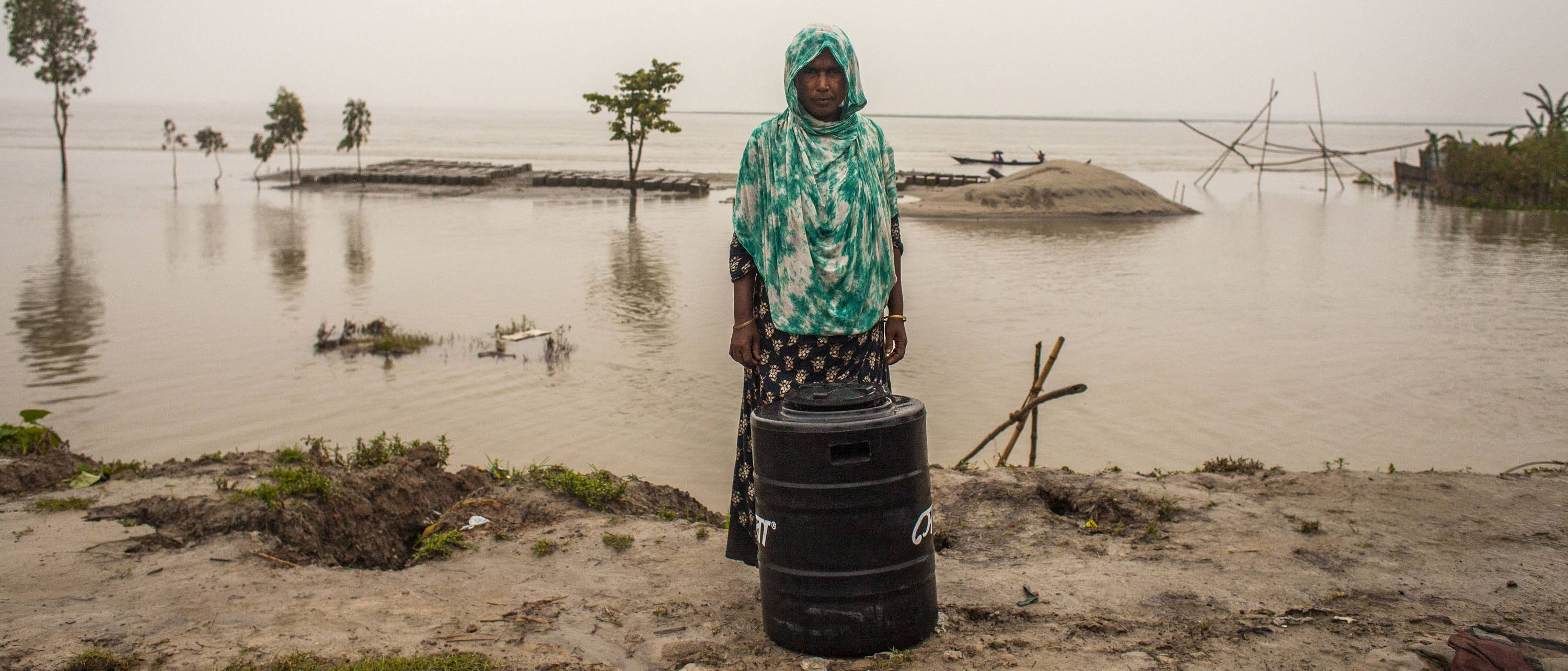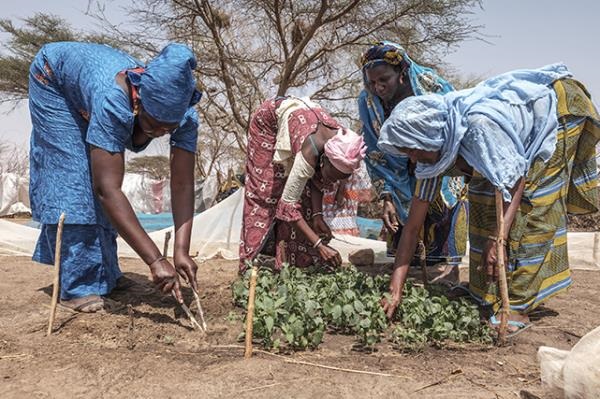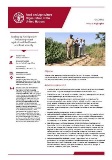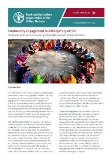Anticipatory Action

FAO is forging a way for a faster, more effective humanitarian system by shifting from disaster response to anticipation.
Anticipatory action is changing the way we manage disasters. Acting ahead of crises means protecting people's lives and livelihoods with benefits that reach far into the future.
Disasters are predictable. Thanks to technological advances, early warning information is more accurate and readily available than ever before. The FAO anticipatory action approach uses risk analysis and forecasts to trigger interventions
before a crisis escalates into a humanitarian emergency. This is particularly critical in the agriculture sector. For small-scale farmers, heeding early warning signals can make the difference between a shock and a crisis.
Related links
News

News
Sierra Leone: Belgium supports anticipatory actions against the secondary impacts of COVID-19
02/07/2020
Implementing anticipatory actions to mitigate the impacts of COVID-19 on food supply chains and safeguard the livelihoods and food security...
Publications

Publications
Madagascar: Project Highlights - OSRO/MAG/208/GER
07/2024
The Government of Germany, through the Special Fund for Emergency and Rehabilitation Activities −Anticipatory Action Window, contributed USD 900 000...

Publications
Global: Project Highlights – OSRO/GLO/1196/GER
07/2024
The German Federal Foreign Office contributed EUR 4.5 million (USD 4 516 472) to safeguard the agricultural livelihoods and food security of the most...

Publications
Community engagement in Anticipatory Action: Snapshot of experiences and good practices from focus countries
06/2024
The Food and Agriculture Organization of the United Nations (FAO), as one of the leading operational organizations implementing Anticipatory Action...
Multimedia

Photo collection
Mali: Anticipatory Actions to mitigate the risk of floods in the Sahel
20/02/2024
In 2022, flooding had devastating consequences in the Sahel, destroying the livelihoods of 1.4 million people and affecting more than 2.7 million ha...
Video
Anticipatory Actions to mitigate the impact of floods in the Sahel
16/04/2024
In 2022, West Africa experienced some of the worst flooding on record. Millions lost their homes. Thousands lost their lives. The heavy rainfall destroyed...

Photo collection
Niger: Anticipatory Actions to mitigate the impact of floods
19/02/2024
Thanks to funding from the German Federal Foreign Office, the Food and Agriculture Organization of the United Nations (FAO) is implementing Anticipatory...
